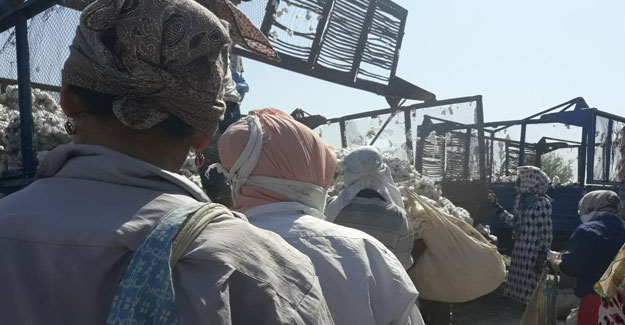
Forced Labour Persists In Uzbekistan's Cotton Fields
Uzbekistan has made important strides in reducing the use of forced labour in its cotton sector, but has yet to eliminate it completely, according to new research released last week. Uzbek Forum, an international non-governmental organisation, investigated six regions of Uzbekistan to assess the prevalence of forced labour in the 2019 cotton harvest. Two independent human rights activists also conducted interviews and fact-finding missions in two other regions. They found the central government continues to be involved in mobilising employees of public institutions and enterprises to work on cotton farms, with the fear of job or benefit loss or other reprisals if they refuse. Those mobilised to work were largely mid-level civil servants, but also included emergency workers, firefighters, hospital, & school employees. Uzbek Forum also obtained official documents showing labour mobilisation continued to be directed by authorities or was the result of government policy. Uzbekistan has sought to transform its cotton sector through privatisation and has eliminated a production quota system that drove the need for forced labour. However, the new research found that farmers enter private contracts under the supervision of local officials to produce a specified amount of cotton, a system which closely resembles the government quotas abolished in March. Some farmers faced penalties and threats for not producing enough cotton, spurring the use of forced labour even on private farms. The investigation identified the failure of the government to establish a fair recruitment system, independent of government or employer interference, as a major roadblock in eliminating forced labour. Farmers facing labour shortages do not always have the ability to recruit voluntary workers, so they rely on local government authorities to mobilise labour. When this occurs, the accountability system is not effective in prosecuting perpetrators or providing remedy to those forced to work, both critical in ending the practice of forced labour. Uzbekistan wants international brands and investors to return and create much-needed employment opportunities, but the government needs to assure them that forced labour has been eliminated. An important element to achieving this goal is ensuring space for independent civil society and unions, particularly those who monitor forced labour and support worker organising. By protecting these fundamental rights, the government can both improve conditions for workers and create opportunities for international business engagement.
Textile Excellence
If you wish to Subscribe to Textile Excellence Print Edition, kindly fill in the below form and we shall get back to you with details.













